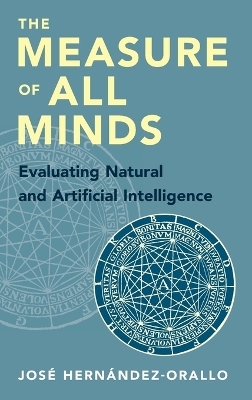
The Measure of All Minds
Cambridge University Press (Verlag)
978-1-107-15301-1 (ISBN)
Are psychometric tests valid for a new reality of artificial intelligence systems, technology-enhanced humans, and hybrids yet to come? Are the Turing Test, the ubiquitous CAPTCHAs, and the various animal cognition tests the best alternatives? In this fascinating and provocative book, José Hernández-Orallo formulates major scientific questions, integrates the most significant research developments, and offers a vision of the universal evaluation of cognition. By replacing the dominant anthropocentric stance with a universal perspective where living organisms are considered as a special case, long-standing questions in the evaluation of behavior can be addressed in a wider landscape. Can we derive task difficulty intrinsically? Is a universal g factor - a common general component for all abilities - theoretically possible? Using algorithmic information theory as a foundation, the book elaborates on the evaluation of perceptual, developmental, social, verbal and collective features and critically analyzes what the future of intelligence might look like.
José Hernández-Orallo is Professor of Information Systems and Computation at the Universitat Politècnica de València, Spain. He has published four books and more than a hundred articles and papers on artificial intelligence, machine learning, data mining, cognitive science, and information systems. His work in the area of machine intelligence evaluation has been covered by both scientific and popular outlets, including The Economist and New Scientist. He pioneered the application of algorithmic information theory to the development of artificial intelligence tests.
1. Extended nature; 2. Mind the step: scala universalis; 3. The evaluation of human behaviour; 4. The evaluation of non-human natural behaviour; 5. The evaluation of artificial intelligence; 6. The boundaries against a unified evaluation; 7. Intelligence and algorithmic information theory; 8. Cognitive tasks and difficulty; 9. From tasks to tests; 10. The arrangement of abilities; 11. General intelligence; 12. Cognitive development and potential; 13. Identifying social skills; 14. Communication abilities; 15. Evaluating collective and hybrid systems; 16. Universal tests; 17. Rooting for ratiocentrism; 18. Exploitation and exploration.
| Erscheinungsdatum | 12.04.2017 |
|---|---|
| Zusatzinfo | 7 Plates, color; 51 Halftones, black and white; 10 Line drawings, black and white |
| Verlagsort | Cambridge |
| Sprache | englisch |
| Maße | 157 x 235 mm |
| Gewicht | 1040 g |
| Themenwelt | Geisteswissenschaften ► Philosophie |
| Geisteswissenschaften ► Psychologie ► Pädagogische Psychologie | |
| Informatik ► Theorie / Studium ► Künstliche Intelligenz / Robotik | |
| ISBN-10 | 1-107-15301-8 / 1107153018 |
| ISBN-13 | 978-1-107-15301-1 / 9781107153011 |
| Zustand | Neuware |
| Informationen gemäß Produktsicherheitsverordnung (GPSR) | |
| Haben Sie eine Frage zum Produkt? |
aus dem Bereich


